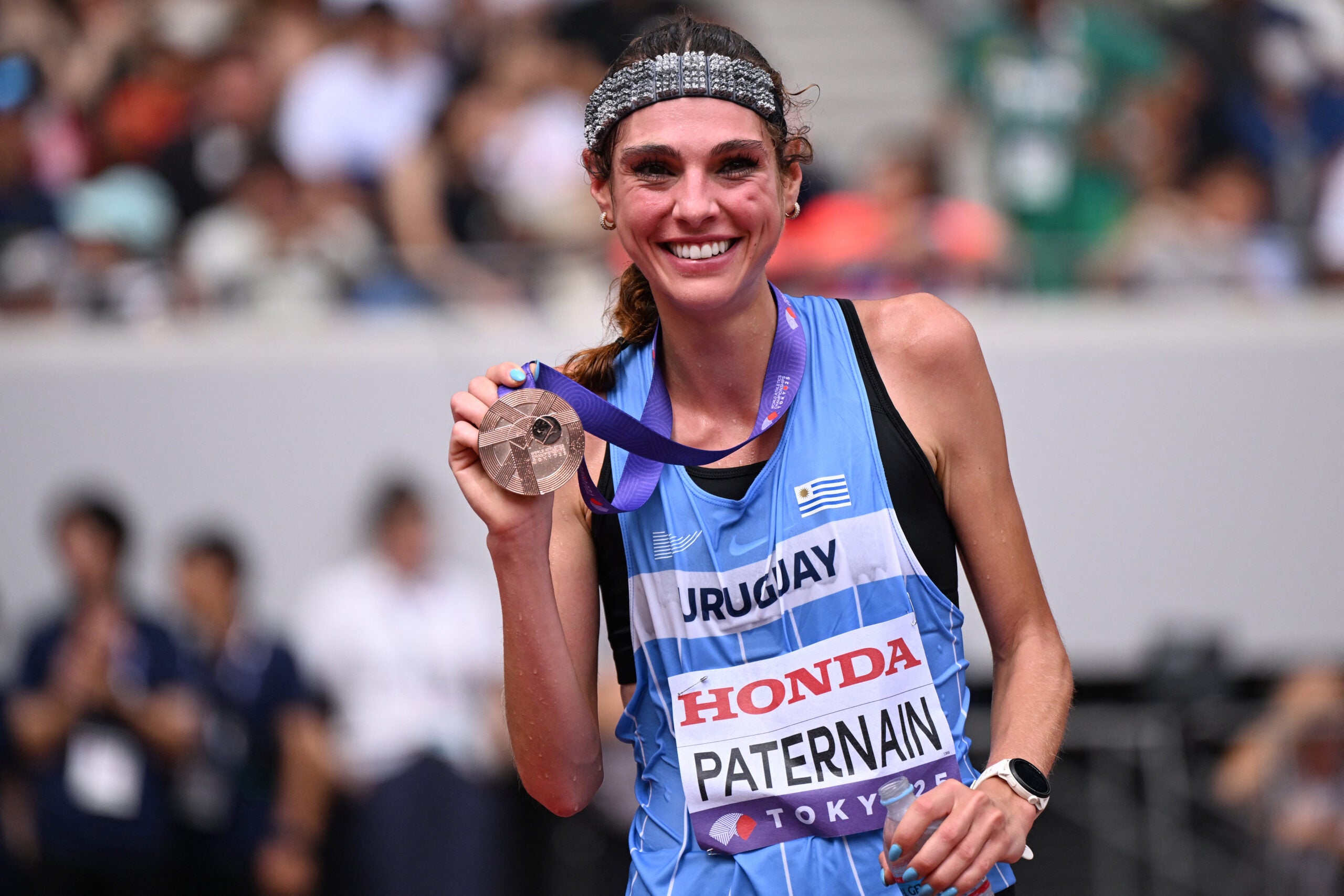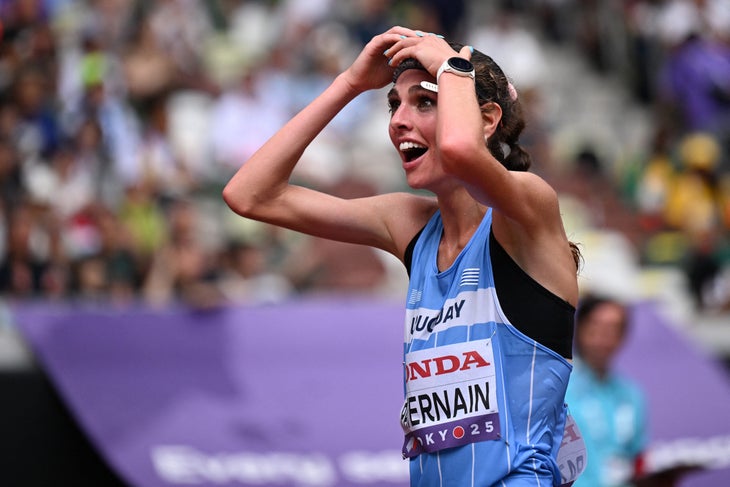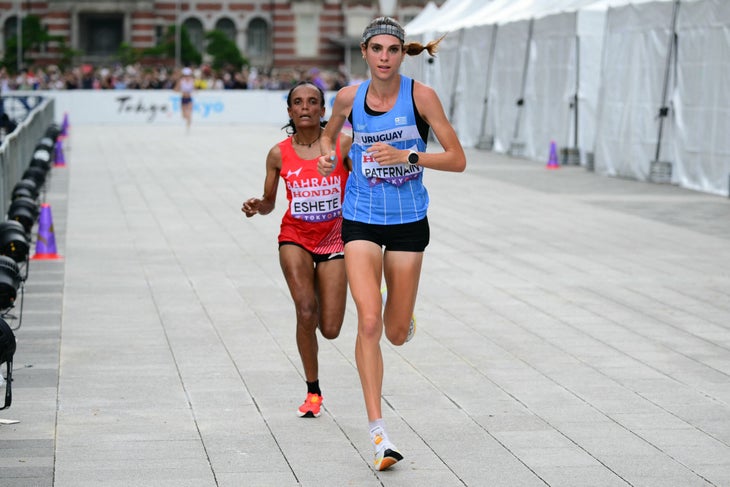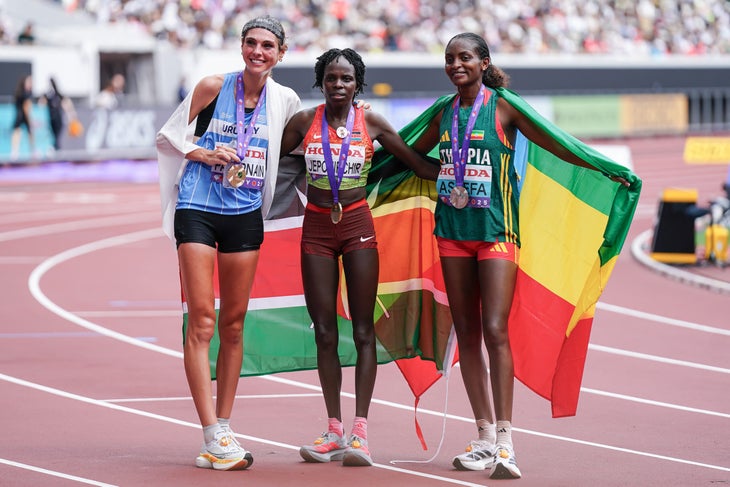Sportsensoria
Unleash Your Inner Athlete: Exploring the World of Sports
Unleash Your Inner Athlete: Exploring the World of Sports

 Julia Paternain didn’t realize she had earned bronze until after she crossed the line of the marathon at the World Athletics Championships in Tokyo on September 14, 2025. (Photo: Kirill KUDRYAVTSEV / AFP)
Julia Paternain didn’t realize she had earned bronze until after she crossed the line of the marathon at the World Athletics Championships in Tokyo on September 14, 2025. (Photo: Kirill KUDRYAVTSEV / AFP)
 Bronze medalist Julia Paternain of Uruguay, gold medalist Peres Jepchirchir of Kenya, and silver medalist Tigst Assefa of Ethiopia pose for a photo after the women’s marathon on day two of the World Athletics Championships Tokyo 2025 at National Stadium on September 14, 2025 in Tokyo, Japan. (Photo: Daniela Porcelli/Getty Images)
Bronze medalist Julia Paternain of Uruguay, gold medalist Peres Jepchirchir of Kenya, and silver medalist Tigst Assefa of Ethiopia pose for a photo after the women’s marathon on day two of the World Athletics Championships Tokyo 2025 at National Stadium on September 14, 2025 in Tokyo, Japan. (Photo: Daniela Porcelli/Getty Images)